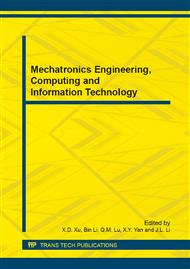[1]
K. Lloyd and D. E. Little, Self-Determination Theory as a Framework for Understanding Women's Psychological Well-Being Outcomes from Leisure-Time Physical Activity, Leisure Sciences, vol. 32, pp.369-385, (2010).
DOI: 10.1080/01490400.2010.488603
Google Scholar
[2]
S. M. Ma, Y. Tan, and S. C. Ma, Testing a Structural Model of Psychological Well-Being, Leisure Negotiation, and Leisure Participation with Taiwanese College Students, Leisure Sciences, vol. 34, pp.55-71, (2012).
DOI: 10.1080/01490400.2012.633855
Google Scholar
[3]
R. A. Dionigi, S. Horton, and J. Bellamy, Meanings of Aging Among Older Canadian Women of Varying Physical Activity Levels, Leisure Sciences, vol. 33, pp.402-419, (2011).
DOI: 10.1080/01490400.2011.606779
Google Scholar
[4]
Z. Xu, Incomplete linguistic preference relations and their fusion, Information Fusion, vol. 7, pp.331-337, (2006).
DOI: 10.1016/j.inffus.2005.01.003
Google Scholar
[5]
Z. Xu, A method for multiple attribute decision making with incomplete weight information in linguistic setting, Knowledge-Based Systems, vol. 20, pp.719-725, (2007).
DOI: 10.1016/j.knosys.2006.10.002
Google Scholar
[6]
T. C. Wang, S. C. Hsu, and Y. C. Chiang, Multi-Criteria Decision Making with Expansion of Incomplete Linguistic Preference Relations, Wseas Transactions on Mathematics, vol. 6, pp.817-823, (2007).
Google Scholar
[7]
S. C. Hsu, T. C. Wang, T. H. Chang, and J. Chang, Application of incomplete linguistic preference relations in predicting the success of ERP implementation, in Fuzzy Systems, 2009. FUZZ-IEEE 2009. IEEE International Conference on, Jeju Island Korea, 2009, p.1983-(1988).
DOI: 10.1109/fuzzy.2009.5277255
Google Scholar
[8]
T. -H. Chang, S. -C. Hsu, T. -C. Wang, and C. -Y. Wu, Measuring the success possibility of implementing ERP by utilizing the Incomplete Linguistic Preference Relations, Applied Soft Computing, vol. 12, pp.1582-1591, (2012).
DOI: 10.1016/j.asoc.2011.12.008
Google Scholar


